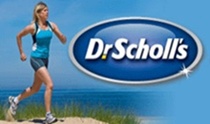Bayer, Novartis, Reckitt Benckiser, P&G in fray for Merck & Co's consumer healthcare unit
20 Feb 2014
Consumer and healthcare giants are exploring a deal to buy Merck & Co Inc's consumer healthcare unit, which includes Dr. Scholl's foot care products, worth $10 billion to $12 billion, Reuters yesterday reported, citing several people familiar with the matter.
 Bayer AG, Novartis, Reckitt Benckiser Group, and Procter & Gamble Co are among the companies that are exploring a deal to buy the unit, the report said.
Bayer AG, Novartis, Reckitt Benckiser Group, and Procter & Gamble Co are among the companies that are exploring a deal to buy the unit, the report said.
All of them already have strong consumer brands; While Novartis owns nasal decongestan Otrivin and cough relief products like Sinecod and Theraflu, Bayer owns the popular antacid Alks-Seltzer and Aleve for pain relief. P&G owns Vicks, while Reckitt owns international rights for Scholl foot care and OTC products like Nurofen and Mucinex.
Merck has held meeting with potential buyers after receiving preliminary offers a few weeks ago, and is expected to seek second-round offers in late March, the report added.
Merck & Co, the second largest drug maker in the US, which is being advised by Morgan Stanley, is considering alternatives for both its consumer and animal health businesses.
Earlier media reports had said that among a range of options the New Jersey-based company had considered for the consumer unit is swapping the business for the animal health and other units of its Swiss rival Novartis AG.
But such a move was seen as unlikely since the complexity of valuing different businesses is enormous, prompting Merck to explore an outright sale of its consumer unit.
Merck & Co's consumer healthcare unit is best known for its allergy medicine Claritin, Coppertone sunscreen protection range, Dr Scholls footcare products, constipation treatment MiraLax and Oxytrol – the first over-the-counter treatment for overactive bladder in women.
For its larger animal health businesses, Merck & Co may spin-off the unit just like Pfizer did last year when it spun off its animal health unit as a separate publicly traded company called Zoetis (See:Pfizer to spin-off rest of animal health unit Zoetis to shareholders).
Merck & Co's animal health unit is the world's second largest after Zoetis (IPO seen valuing Pfizer's animal health unit at $12.5 billion).
Merck & Co's profit declined last year due to generic competition to its top-selling drug Singulair, and the company's inability to introduce new drugs after research setbacks.
The drugmaker has been axing thousands of jobs even as it looks to boost demand for existing products to overcome the loss of revenue from Singulair Maxalt and Temodar.
According to analysts, investors are looking for Merck to restructure and perhaps sell off non-pharmaceutical units (Merck & Co mulls sale of consumer healthcare, animal health businesses).
Last year it sold some of its active pharmaceutical ingredients to Aspen Pharmacare, South Africa's biggest pharmaceutical company.




















